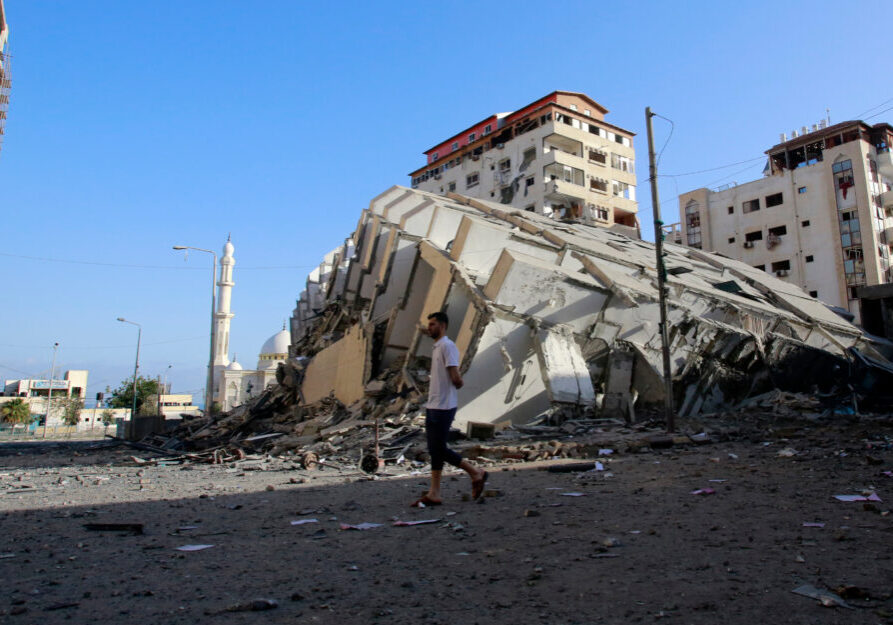Australia/Israel Review
Editorial: Challenging the status quo
Jan 31, 2018 | Colin Rubenstein

The idea that the status quo in the Israeli-Palestinian conflict is unsustainable has become something of a mantra, yet rarely with a focus on the policies of Palestinian leadership and key institutions that constitute major obstacles to peace.
This is regrettable, because without considering these factors, it is impossible to fully understand why Palestinian leaders have walked away from at least three offers of statehood that would have met the vast majority of legitimate Palestinian demands, but would have also required them to agree to end the conflict and accept the legitimacy of the state of Israel.
At the heart of the Palestinian status quo is Palestinian Authority President Mahmoud Abbas, who turns 83 in March and is in the 13th year of a four-year term.
Since US President Donald Trump recognised Jerusalem as the capital of Israel on December 6, Abbas has gone on an oratorical rampage, bashing the US and Israel in every speech and often descending into historical revisionism, conspiracy theories and rants tinged with antisemitism.
For example, at a summit of the Organisation of Islamic Cooperation (OIC) in Turkey on Dec. 13, Abbas said of Jews that “it is mentioned in the holy Quran they fabricate truth.”
Then, on Jan. 14, in a rambling two-hour diatribe at a meeting of the Palestine Liberation Organisation’s Central Council in Ramallah, Abbas depicted Israel as a colonial scheme of European powers, with no connection to Jewish history, among other things.
It was too much for even outspoken supporters of Palestinian aspirations to swallow. Barak Ravid, diplomatic reporter for the left-wing Israeli newspaper Ha’aretz, tweeted that Abbas’ speech was “becoming more and more delusional.”
Former US Ambassador to Israel under Barack Obama, Daniel Shapiro – a champion of the two-state peace paradigm – was succinct.
“[Abbas’] bizarre description of Israel as [a] colonial creation of European powers, his canard that Israel has no organic connection to Jewish history, is completely inconsistent with any plausible logic of accepting a two-state deal,” Shapiro said, “His accusation of Israel importing drugs to poison Palestinian youth is shameful.”
The speech, Shapiro wrote, “confirms… the United States must conclude that there is no reason to believe Abbas has it within him to take the necessary decisions to reach a peace deal with Israel.”
Nor can Abbas’ recent tirades be somehow excused as an emotional overreaction to Trump’s announcement (which expressly did not determine borders or rule out east Jerusalem serving as a future capital of a Palestinian state). Sadly, the Palestinian leader has a long history of such comments – for example, outrageously accusing Israeli rabbis of calling for the poisoning of the Palestinian water supply in a speech to the EU Parliament in 2016.
In short, in 13 years since taking over from Yasser Arafat, Abbas has neither prepared his people for peace nor shown any indication that he, himself, is mentally or emotionally prepared to deliver a state to his people based on a peace agreement with what he considers to be a “colonial” state populated by bloodthirsty, deceitful people without any historical connection to the land.
One must not forget that, for all of his anger against the Trump Administration, Abbas spent the previous eight years squandering the goodwill of a far more sympathetic Obama Administration, shunning negotiations to focus on delegitimising Israel in international bodies.
Abbas has hinted at his imminent retirement, and while there is no clear successor, the common denominator among challengers is a commitment to continued rejection of a realistic peace.
The deleterious Palestinian political status quo extends beyond its leadership and is ingrained in its aid and educational system – in part through the politicised United Nations Relief and Works Agency (UNRWA).
Unlike the UN’s Refugee Agency UNHCR, UNRWA bestows refugee status on descendants of original refugees and nothing – including holding citizenship in other countries, for example – abrogates that status.
The estimated original 700,000 refugees has ballooned to over 5 million by UNRWA’s count – a political lever to increase international pressure against Israel.
And thus we see the bizarre situation where UNRWA assumes responsibility for services inside refugee camps within cities under the control of the Palestinian Authority including Bethlehem, Ramallah and Nablus, while UNRWA has, for decades, crossed the line between providing aid and acting as advocates for Palestinian political objectives, especially the so-called “right of return”.
In recent weeks, Washington has signalled that its historic financial support for the PA and UNRWA must not be taken for granted – that cooperation towards peace will be expected from Ramallah, while UNRWA will be expected to enact reforms that will end its involvement in political incitement and ongoing determination to keep ever-growing numbers of Palestinians permanently in refugee limbo.
Thus, US Vice-President Mike Pence, in his landmark visit to Israel, did more than just further build on an already warm relationship, with his comments to the Knesset telling Israelis, “your cause is our cause, your values are our values, and your fight is our fight” and providing strong statements on the Iranian nuclear threat. He also made it clear, as previous US administrations often failed to do, that the onus is also on the Palestinian side to reach a negotiated agreement, and they must do their part to create the preconditions for one, saying, “We strongly urge the Palestinian leadership to return to the table;” “Any peace agreement must guarantee Israel’s ability to defend itself by itself;” and “Fact is the only true foundation for a just and lasting peace.”
In order to prepare the Palestinian people for a genuine, enduring peace, there need to be fundamental changes in the Palestinian status quo from within, on both the political and institutional level. Their current policies are both incompatible with peacemaking and unsustainable – and reforming the overall Israeli-Palestinian status quo in a positive direction requires first and foremost steps addressing these destructive realities.
Tags: Israel






